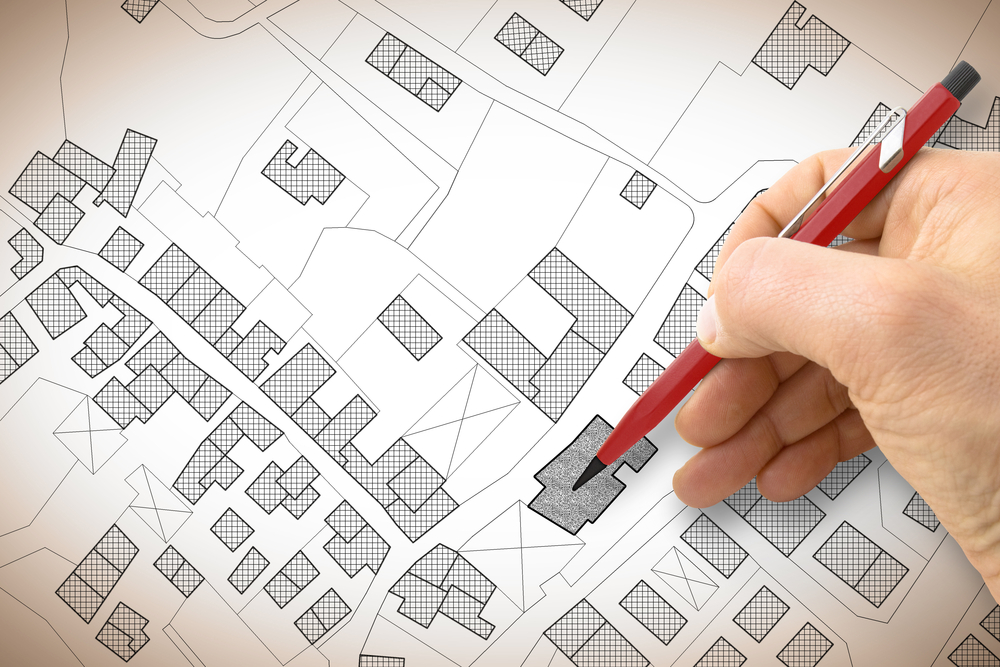Planning

Planning
Planning is the initial phase of any development process and efficiency in this aspect sets high morale for the continuation of any project.
Planners study the land and decide where development is possible and what land should be conserved. Developed land is divided into five categories: residential, commercial, recreational, transport, and civic areas. These are all determined in such a way to best suit the current and future populations. The tediously drawn-out Mahon Tribunal has clearly illustrated the problems that arise out of a corrupt planning system. The surge of development in Dublin in the 1970s had disastrous effects for the residents: a lack of long-term planning meant that little thought was given to the foundation of schools or hospitals or other necessary facilities. Mistakes have been learnt from that, however, and today the importance of planning as part of the development process is emphasised rather than ignored. It is a challenging career with great responsibilities but the rewards are also fruitful as your work will not just affect today’s society, but also the everyday lives of future generations.
Education
A three-year honours BA degree course, entitled Geography, Planning and Environmental Policy, is now available in UCD (450 points in 2007). This course is designed for those who wish to become professional planners and has received partial accreditation from the Royal Town Planning Institute (RTPI). A level 8 degree, it is multidisciplinary and draws from PEP (Planning & Environmental Policy), geography, economics, sociology, politics, environmental studies, and management. As part of their third-year programme, students will have the option of partaking in an overseas field course. On completion of the degree, graduates need to complete a one-year specialist Masters programme in order to qualify as a professional planner.
There is also the level 8 Planning & Environmental Management degree (360 points in 2007) at DIT, which prepares students to work in the planning sector. During the four-year course, students will learn about environmental impact reports, rural and urban development, development control, and much more. Graduates can work in the planning sector or enrol in postgraduate planning courses in DIT and elsewhere. Postgraduate level 9 planning programmes – including the MSc in Spatial Planning at DIT and the two-year Masters of Regional and Urban Planning at UCD – are open to degree holders. Applicants for DIT must hold a 2. 2 in an appropriate degree course and also have significant work experience.
The Masters in UCD is suitable for graduates of Architecture, Civil Engineering, Economics, Sociology, Geography, or Surveying. Aspiring town-planning technicians – the technical assistant to the town planner – can enrol in Architectural Technology courses. Waterford, Carlow, Galway-Mayo, Cork, and Dublin Institutes of Technology provide these three-year level 7 degrees. Students of these project-orientated courses learn about building surveying, structure, materials, regulations, architectural practice, and how to use Computer-Aided Design (CAD). Options
After Qualification
Qualified professional planners work for central, regional, and local authorities, and for private practices. The opportunity for career progression and promotion are good in both public and private sectors. The huge increases in urban growth and interest in community development have led to many new employment opportunities in Ireland and abroad. Town planning technicians find work at central and local government levels, and also with private planning consultancies, construction companies, and environmental organisations. Graduates of Architectural Technology courses can apply for technician membership status from the Royal Institute of the Architects of Ireland.
The Work
Planners must be sensitive enough to strike a balance between the need for development and the prevention of negative impact on the local environment and inhabitants. Their work therefore involves a lot more than engineering and architectural tasks; they must communicate and negotiate with the various interested parties, such as the public, lobby groups, business interests, the developers, and residents’ associations. Central to this communication is the presentation of ideas – planners use maps, diagrams, models, and written pieces to inform the public and interested parties of the plans for development – and also a complete understanding of present planning regulations. Their work also involves statistical analysis, as they must calculate the most efficient way for a piece of land to be used. Planning technicians provide technical and practical support to planners. Their tasks include administrative work such as storing planning information and dealing with public enquiries, and also technical work such as preparing reports, plans and drawings. Compiling a report can involve the use of statistics, drawings, maps, and public surveys.
Personal Qualities & Work Environment
Experience in geography is important; planning also has aspects that involve economics, sociology, and architecture. Good communication skills are a bonus in guaranteeing a focused and diligent planning team. They will also be of benefit to get effective feedback from all the parties with an interest in a given development. Effective communication will also prove very useful when attempting to reconcile the various parties, who will quite often vehemently disagree on the plans put forward. The planning environment is quite challenging – planners will often come under pressure from various groups to agree with their specific outlook on a development. However, it can be also extremely rewarding, as they play a major role in helping communities to flourish and prosper.
The Money
An experienced planner receives in the region of €35, 000 to €40, 000 per year. Those in the higher echelons of the profession can earn around €70, 000 per year. A qualified and experienced planning technician can expect to earn around €35, 000 annually. The JargonGreenfield Land: Undeveloped land, either in agricultural use or in its natural stateBrownfield Land: Land that was previously in industrial use, which needs an environmental clean-up before redevelopment can beginSustainable Development: Development that does not have a degrading effect on the environment


Leave a comment